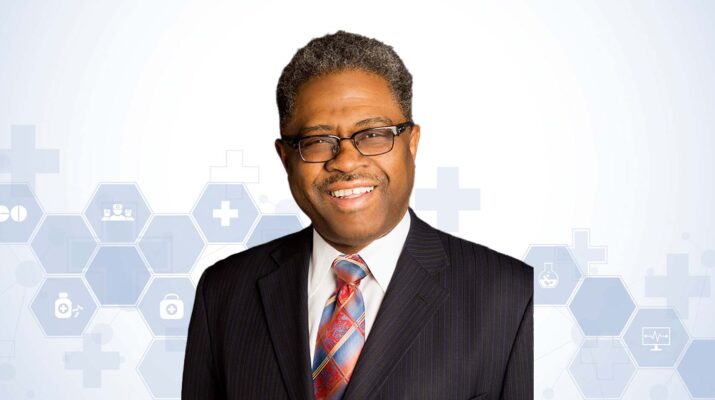Common Ground Health CEO talks about the need to improve health equity in the Rochester-Finger Lakes area
By Ernst Lamothe
Rochester native Wade Norwood has held leadership positions in the community for more than three decades, including roles in public service, education and health care. In management at Common Ground Health since 2006, Norwood has been central to the nonprofit’s strategic planning process, pushing the organization to become a more effective change agent for all Finger Lakes region residents, especially those most at risk. He also spearheaded the organization’s efforts to engage underserved populations in health improvement, championing the creation of the African American Health Coalition, the Latino Health Coalition and the Partnership for Access to Healthcare, and providing ongoing support for these and other engagement initiatives.
Q. Talk about the overall services Common Ground offers
Common Ground Health’s mission focuses on the region’s health issues; research, data, analytics; reports and studies such as The Color of Health, Overloaded and My Health Story. The grassroots work we carry out in barbershops, churches and through our other community partnerships is essential to the organization. Our vast portfolio of services is all about bringing focus to the region’s health issues.
Q. Why do you believe your organization is essential, especially the African American Health and Latino Health Coalition?
Health improvement requires a commitment to health equity, and health equity can only be achieved when it is informed by and responsive to culture and the social determinants of health. Our coalitions allow us access to community expertise that can turn our data into information and our analytics into understanding.
Q. What are some health issues that you believe are important to the African American and Latino community?
The community has been very clear that it is not just issues associated with healthy eating and lifestyles, but also mental health and healthy child development. It is significant that across the region, irrespective of race, class or age, mental and emotional health comes up as a top issue for the community.
Q. What are some new initiatives that you are looking for this year?
We are excited about our My Health Story 2.0 to update our regional health scan and our new Latino health report. And our annual Speak Life conference with keynote speaker Harriet Washington, author of “Medical Apartheid.”
Q. Why is it important to improve health equity among African American?
The amount of avoidable and suboptimal hospital and emergency department visit totals, by our conservative estimate, is $1 billion per year in the Finger Lakes region. That equates to lost opportunity and investment in other aspects of the community. That’s why we need to improve health equity in the community. If we can improve it, we end up raising the bar for everyone in the region and that leads to cost savings, better community health and better experience of care. This is what is known as “the triple aim” of health care. The fourth would be a better experience for providers.
Q. What can our area do better to offer health equity among everyone?
First, we need to begin centering mental and emotional health in the work of health improvement. We also need to systemically tackle the social determinants of health with a lens toward health equity.
Q. Can you talk about the importance of addressing mental health issues?
We need to continue to ask folks to think about the challenges we each had to overcome just over the course of our morning to reach where we are at this point of the day. All of us come to the table with a certain amount of weight attached. That weight is only lifted when we are able to solve these challenges.
When issues begin to mount, such as transportation barriers, aren’t soluble, kids’ schools’ problems, when there’s too much month and not enough money to make ends meet, our data is very clear on how folks end up feeling overloaded. That often leads to poor mental health. People will fail to take care of their diabetes if they can’t provide safety, shelter and warmth for themselves or their families. Our health care systems need to care for the entire person, not just a slice of their lives. That’s what we mean when we talk about centering mental and emotional health.
Q. What partnerships do you view as vital in the area?
I would be remiss if I did not recognize the profound impact that our community partners have made on our ability to deliver services across our region, Excellus for underwriting The Color of Health report, demonstrating how much they value health equity. The local health departments, alongside county and city government partners across the Finger Lakes region who made it a priority to reach the community with information about COVID-19 and for coordinating community testing and vaccination efforts. Funders ranging from the United Way, the Greater Rochester Health Foundation, Rochester Area Community Foundation and the ESL Foundation, who have made it possible to reach more people with timely information about COVID-19 and vaccines. Our education partners, who have been key to making sure kids stay safe and transmission levels stay low in schools. The two major health care systems (URMC and RRH) and the network of community nonprofits and FQHCs, which have done the amazing work of getting shots into people’s arms at an unprecedented pace. And we can’t forget our community members who have stepped forward to volunteer in many ways to protect their families, friends and neighbors.

